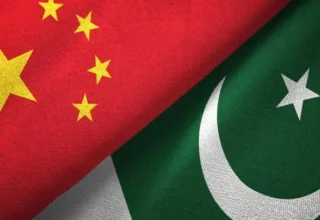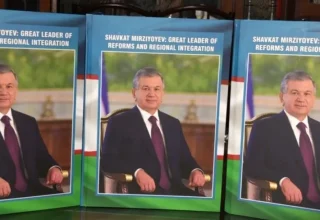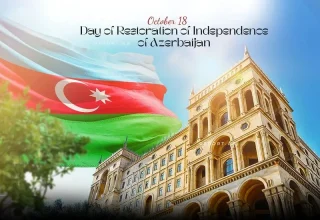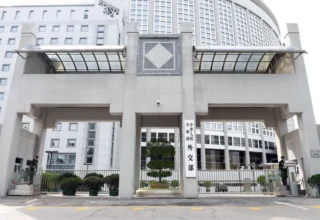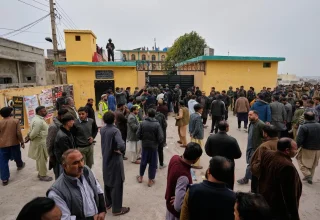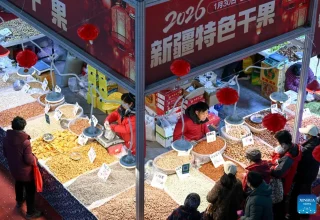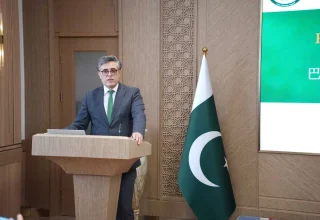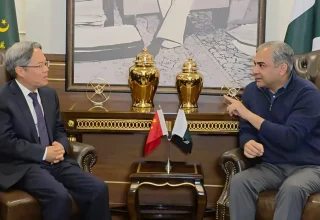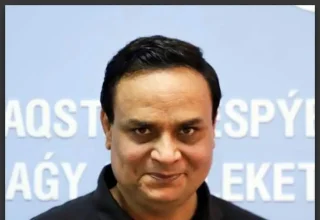
It seems that the President Elect of Indonesia, Prabowo has great economic vision which is futuristic, modern, integrated and coordinated gearing macro-economy of the country towards greater stability, sustainability and diversification by clubbing formal and informal economies in the days to come. It is predicted that education, health, basic necessities of life will be one of the key strategic priorities of new government successfully transforming landscape of Indonesia’s state, society and the system.
President Elect Prabowo believes Indonesian economic growth may reach eight percent within the first two or three years of his presidency. That would be a notable increase from the 4.5-5.5 percent GDP growth that Indonesia has recorded in recent years which shows his keen interest in economic prosperity which can be realized through holistic and comprehensive policies in the days to come.
Thus he needs experts of applied economics, community development, shared prosperity, democratization of wealth, resources, women empowerment, Islamic banking & finance, halal industry, international marketing, international communication, international law, innovative tourism, digitalization, modernization, qualitative industrialization and last but not least, human capital development in the country pulling his nation from the clutches of middle income trap inching towards qualitative life blessed with greater socio-economic prosperity and political stability.
It is predicted that one of the key drivers of his economic agenda would be biodiesel which would allow the country to reduce its reliance on diesel imports. The Indonesian policy makers have already started this transformation and the implementation of the B35 policy that lead towards a 35 percent palm oil-blend in biodiesel mandatory. Thus a giant step has already been initiated and implemented.
It seems that the president-elect has certain plans to increase the palm oil blend requirement to 50 percent by 2029 which has multiplier effects.
First, it would reduce the country’s USD20 billion diesel oil imports. Second, it takes advantage of Indonesia’s status as the world’s largest palm oil producer. Thus new paradigm shift would be a new value addition contributing further in the upward march of its macro-economy, green economy and above all it would further reduce its reliance of imports in the days to come.
Additionally, energy and food security, green technologies and economic sustainability will likely be at the utmost priority of his economic agenda which is a positive sign carries out immense socio-economic benefits and befitting propositions.
While President-Elect Prabowo mentioned some of his own goals for the Indonesian economy, he is also expected to continue with many of Jokowi’s existing policies. The most prominent of these is commodity down-streaming.
This includes banning certain raw material exports with companies and instead calls for domestic manufacturing and turning them into higher-value products. In this regard, South Korean giants Hyundai Motor Group and LG Energy Solution have formed a joint venture to open an Electric Vehicle battery plant in West Java in 2024 so; Indonesia is on the right path of qualitative industrialization to earn more and more revenues for further socio-economic innovation and diversification.
Hopefully, the implementation of the Job Creation Law will not be disrupted during the presidential transition. It is designed to improve the ease of doing business; the regulation has simplified and streamlined some of the country’s sometimes onerous investment procedures.
During the World Economic Forum in April 2024, Coordinating Minister for Economic Affairs Airlangga Hartarto reiterated that foreign investment in Indonesia rose 29.4 percent on average in the five quarters after the law’s implementation. It would be a wise policy measure if the president elect would roll back incentives for foreign investors, such as tax holidays and tax allowances making the existing law more sensible, attractive and productive for all. Thus grand political consensus should be achieved through the spirits of accommodation and constructivism.
It is evident that one of President-Elect Prabowo’s key campaign promises was a free lunch program that would provide meals to school students, children under five, and pregnant women. Approximately 83 million people will be eligible with the scheme predicted to need USD28.5 billion in funding each year thus acting as a giant step towards human capital development.
It is estimated that through improving nutrition and minimizing the financial burden on low-income households, the free lunch initiative is expected to create several economic opportunities. Companies in the food production and food security sectors will reap clear benefit.
It is suggested that technology, machinery, and raw material supply chains should be clubbed together to enhance productivity to make this noble social development incentive a living reality because their role would be vital in scaling up the free lunch program and sustaining it in the future.
Moreover, during the presidential campaign, Prabowo’s team highlighted the role increased foreign investment could have on existing commodity down-streaming efforts. It is believed that once the new president assumes office, he will promote a range of industries based on locally sourced commodities. It seems that coal, nickel, oil palm products, biofuel, and timber would be further streamlined and strengthened.
It is anticipated that Indonesian domestic market demand would provide enormous opportunities for regional as well as global manufacturers in Indonesia. It is suggested that further regional integration, especially with ASEAN would be a wise economic policy for the exports of downstream products made locally in various regions of Indonesia.
President-elect Prabowo Subianto has ambitious goals for the Indonesian economy. Reaching his eight percent growth target requires investments in strategic areas which will hopefully ensure businesses operating in the country can best tap into current advantages, such as strong domestic demand for goods and services.
Last but not least, the domestic business community, investors, private sector and foreign investors should not be worried because there would not be any drastic economic change in the next government. It is predicted that the foreign investment incentives created under the Job Creation Law are expected to remain.














